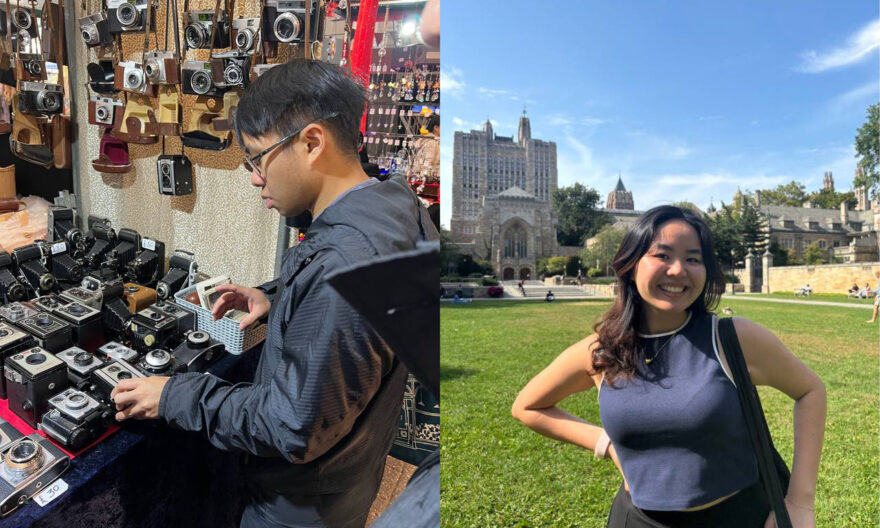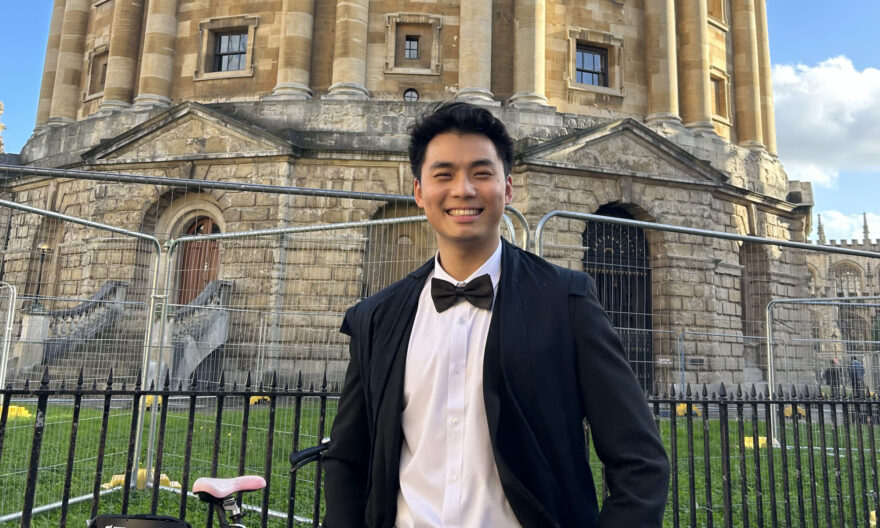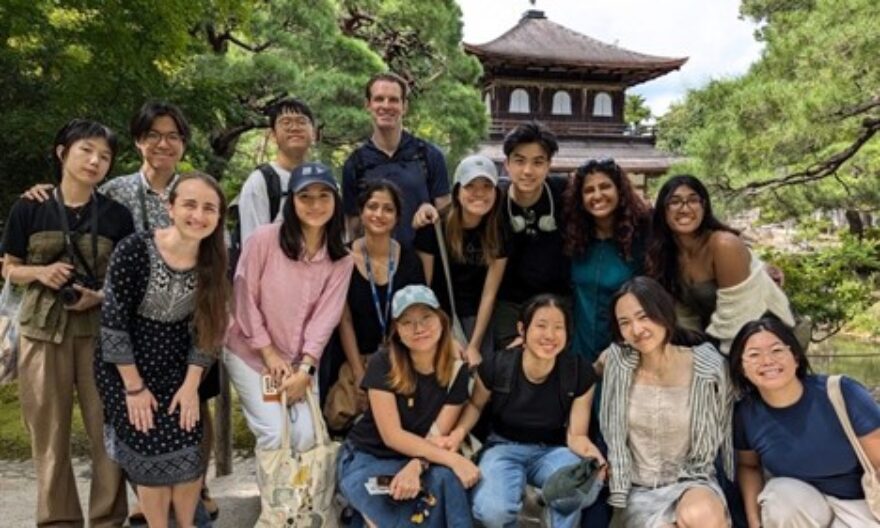Yale-NUS students and alumni delve deeper into food sustainability through an experiential learning trip to Thailand
Learning Across Boundaries (LAB) trip to Thailand enables students to discover the opportunities and challenges of producing alternative proteins
Over the semester’s recess break, students and alumni of Yale-NUS College participated in a Learning Across Boundaries (LAB) trip to Maha Sarakham in Thailand, a province approximately 470 kilometres from Bangkok.
Organised by the Centre for International & Professional Experience Office at Yale-NUS College, LABs are experiential learning projects of a short duration, that enable faculty and staff to share their scholarship and expertise with students beyond the confines of the traditional classroom. This allows them to explore the themes of the curriculum in a broader context.
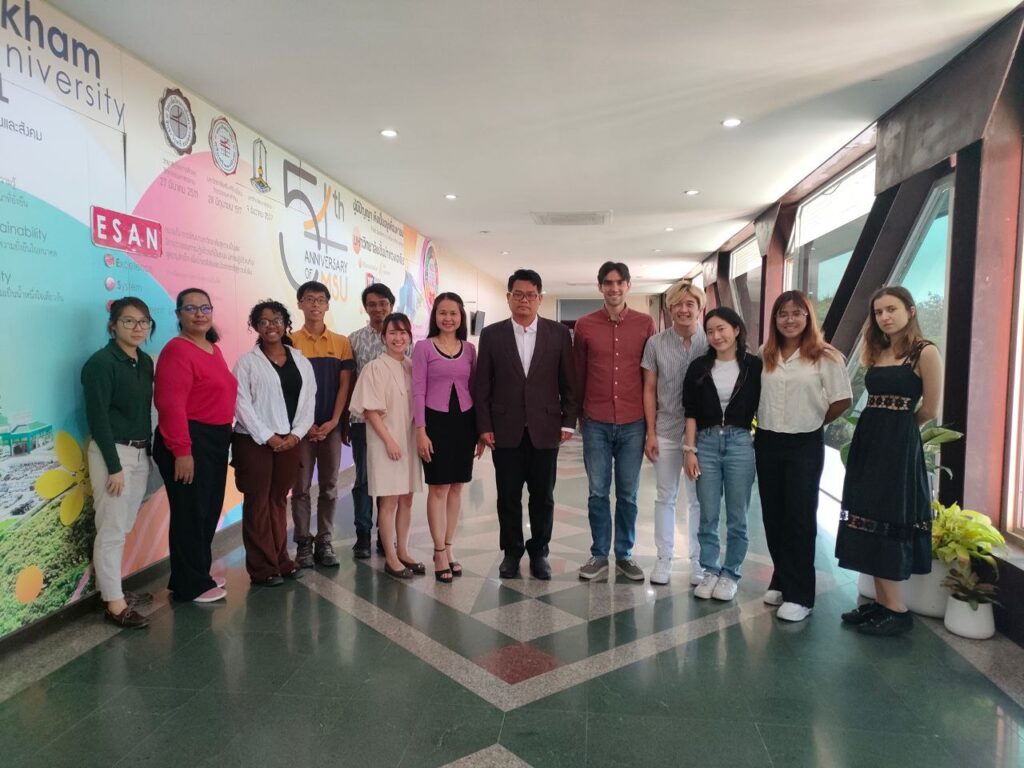 Yale-NUS participants with hosts from Mahasarakham University in Thailand.. Photo provided by Gabriel Tang/Yale-NUS College.
Yale-NUS participants with hosts from Mahasarakham University in Thailand.. Photo provided by Gabriel Tang/Yale-NUS College.
During the LAB, the participants had the opportunity to interact with faculty members from Mahasarakham University and various organisations working on edible insects as a form of alternative proteins. For example, the group visited 32 BUG Farm, an edible insect farm, to learn about cricket farming and the technology involved. The group also visited organisations based at the university, which are working on alternative proteins, ranging from silkworm protein to cricket-derived powder.
During the trip to 32 BUG Farm, the participants learned about the unique methods that the farm uses to rear crickets and monitor the health of the population. The circular nature of the farm, which produces almost zero waste, was another concept in food sustainability that intrigued the students.
Alex Bonnin (Class of 2022) noted: “I had no idea that insect cultivation was as institutionalised as it is, and I enjoyed learning about the farm’s presence at the forefront of the edible insect scene. Their use of automation also gave me hope that technology and agriculture can actually be compatible and deliver genuine results.”
Besides the industry visits, the participants were also immersed in educational activities at Mahasarakham University comprising seminars and interactive workshops on the applications of alternative proteins.
For example, in a seminar led by Assistant Professor Pariyaporn Itsaranuwat, the participants learned about the food sustainability challenges facing Thailand and Southeast Asia; and the potential for edible insects and alternative proteins to address food insecurity in the region.
The seminars also featured a variety of experts based at Mahasarakham University. For example, Assistant Professor Sirithon Siriamornpun elaborated on the science and technical details in the commercial production of edible insects. Mr Chakarn Uttamangkoon, who is a professional working on marketing alternative proteins products, gave a workshop on introducing the participants to general business models for alternative proteins.
The participants also learned about the importance of close collaboration between academia and the industry . Golam Rabbani (Class of 2023) shared: “This LAB provided an opportunity to see how companies and academia are working together to both offer innovative ways to grow insects while also making products that directly address the stigma around insect consumption.”
Sofia Sigal-Passeck (Class of 2021) appreciated the opportunity to interact with alternative protein producers. “My friends and I have been discussing the alternative protein field for some time, and when I saw this alternative protein LAB offered by Yale-NUS, I just couldn’t pass on this opportunity to interact with alternative protein producers firsthand.”
She added: “The most enriching aspect of the LAB was the opportunity to tour various insect protein production facilities. Insights into their operations offered a profoundly educational experience that greatly enhanced my understanding of the industry.”
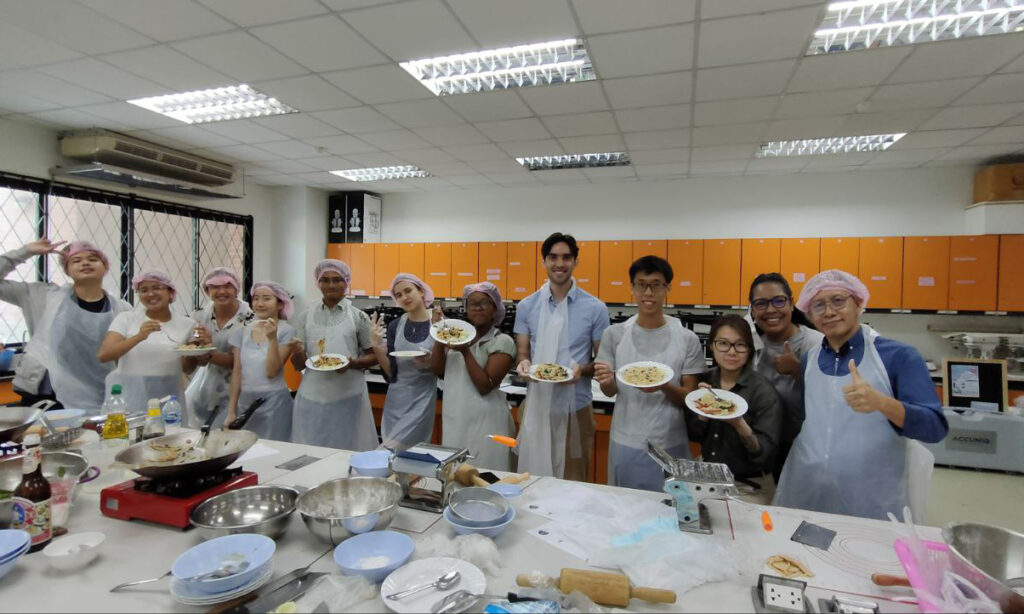 Participants learning to prepare stir-fried noodles using noodles made from crickets. Photo provided by Gabriel Tang/Yale-NUS College.
Participants learning to prepare stir-fried noodles using noodles made from crickets. Photo provided by Gabriel Tang/Yale-NUS College.
The participants were also involved in the preparation of stir-fried seafood noodles made from high-protein noodles supplemented with insect proteins. This workshop, led by Assistant Professor Aswin Amornsin, enabled participants to comprehend how edible insects can be infused with local popular dishes.
Reflecting on the trip, Gwyneth Tan (Class of 2025) recounted: “During these site visits, one of the highlights for me was the opportunity to taste the crickets and silkworms. This multi-sensory experience provided me with further insights into insects as alternative protein sources and the challenges encountered in the process.”
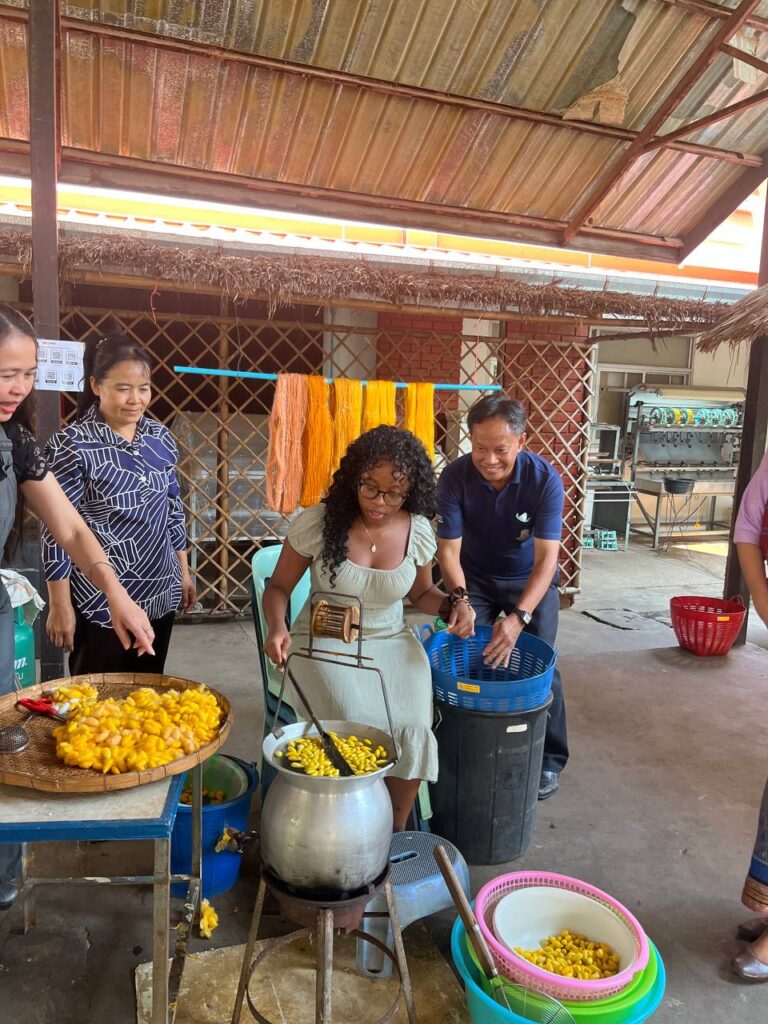 Tinotenda experiences extracting from silkworms. Photo provided by Tinotenda Zimhunga /Yale-NUS College.
Tinotenda experiences extracting from silkworms. Photo provided by Tinotenda Zimhunga /Yale-NUS College.
Tinotenda Zimhunga (Class of 2024) recalled her experiences: “I enjoyed trying the food and making the food. I loved learning the ways alternative proteins are made and I appreciated the hands-on experience in using the noodles from the insect powder for cooking.
Moreover, the business lecture on how to tap into biotech industry for edible insects and make alternative proteins more accessible to the general public really made the entire experience very well-rounded.”

